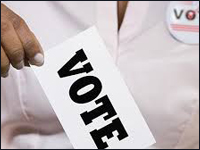 As the late Texas politician Robert Strauss used to say, “You can fool some of the people all of the time – and they’re the ones you need to concentrate on”.
As the late Texas politician Robert Strauss used to say, “You can fool some of the people all of the time – and they’re the ones you need to concentrate on”.
Very funny.
In politics, the golden rule is: whatever result you get, that is what was intended.
Former Deputy Prime Minister John Anderson once said, “We live in an age of astonishing disengagement by far too many good citizens in the life of our nation. I suspect that without compulsory voting we’d have up to half the electorate not bothering to vote at all.”
If we apply the golden rule to John Anderson’s observation, then citizens being disengaged from politics is exactly what is intended. Keep people in the dark. Do things that turn them off politics.
Take parliament’s Question Time, for example.
Not only do our politicians behave appallingly, they take our money and our freedoms and say they will act in our best interests. But instead, they act in their own interest and the interests of the rent-seeking cartels. No wonder people are disillusioned and disengaged.
This world is not a playground; it is a battleground. The troubling aspect, however, is the consistency of the forces on that battleground.
Whether it’s rampant antisemitism, transgenderism or climate activism, the participants all seem to follow the same script – regardless of where they are in the world or how the issue affects them.
Most people, of course, are not into confrontation and therefore choose to opt out, leaving the world to be ‘ruled by those who show up’ as the old saying goes. The problem is that those who show up do not think the same as the ‘good citizens’ John Anderson had in mind.
The activists want everyone to be like them and embrace their views on everything from morality to marriage to matters of life and death. If you object, they say that “If you don’t shut up, we’ll shut you up”.
The Commonwealth Parliament, supported by both major parties, recently rammed through the Combatting Antisemitism, Hate and Extremism (Criminal and Migration Laws) Act 2026.
As Liberty Itch’s Steve Holland reports, “The subsequent political fallout for the so-called ‘Liberal’ Party comes as no surprise.
“The Liberal Party is no longer the liberal political movement it once claimed to be.
“Justifiably, the Nationals aren’t interested in a coalition partner that has abandoned its principles by supporting laws that are completely antithetical to its stated values and platform.
“It is a bitter betrayal by those who claim to safeguard our liberties.
“While primary blame lies with the Labor Government for concocting such appalling laws, the Liberal Party’s complicity is especially disgraceful given its supposed commitment to free speech and individual freedom. As is often the case, hypocrisy amplifies the backlash.”
The world is polarised like never before.
As we’ve said on our website previously, the (political) centre is disappearing. Public policy is becoming something of a gym barbell with weights on each end and a long bar between them. People are either at one end of the political spectrum or the other.
Science was once similar to mathematics in that there was general agreement on the facts.
Not anymore.
‘Follow the science’ is looking less like mathematics and more like economics, with one side of politics pushing their version of the science and the other side pushing theirs.
So, what is the answer?
As we have argued from the outset, ‘family, faith and freedom’ are the best bulwarks against division and authoritarianism. We must stand firm.
In the forthcoming South Australian State election, the Australian Family Party has nominated candidates in every House of Assembly seat (47 in total) together with three in the Legislative Council – a total of 50 candidates.
We have a great team – young and old, male and female, professional and trades – a wonderful cross-section of society which is such a contrast to the current political class.
And the support we have received from other minor parties has been phenomenal.
Six political parties who have decided not to contest this election have pledged their support for the Australian Family Party.
That’s seven parties standing together and putting South Australia first.
Seven voices, one clear choice for South Australia.
Thank you for your support.
Authorised by Bob Day, Australian Family Party, 22 Grenfell Street, Adelaide SA 5000
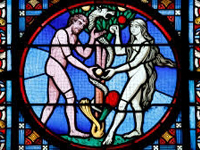 The story is told of the UN Secretary-General proposing that, in the interests of global peace and harmony, all the world’s soccer players should come together and form one ‘United Nations Global Soccer Team.’
The story is told of the UN Secretary-General proposing that, in the interests of global peace and harmony, all the world’s soccer players should come together and form one ‘United Nations Global Soccer Team.’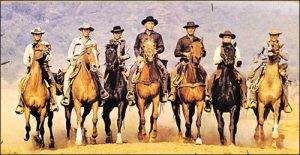
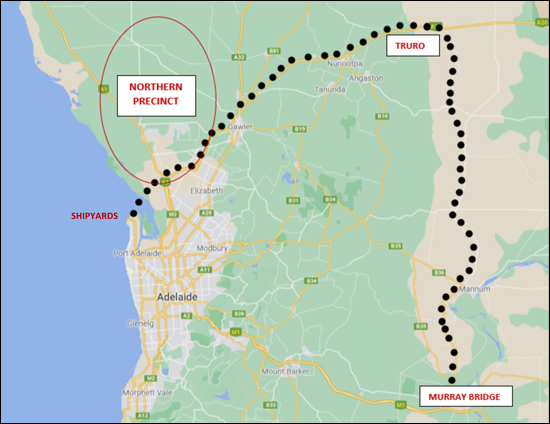
 Christmas story No. 1:
Christmas story No. 1: In a much-quoted exchange, a pollster once asked an Australian voter the following question: “Going into this election, and thinking about the average voter, what would you say is the biggest problem facing Australia today – ignorance or apathy?”
In a much-quoted exchange, a pollster once asked an Australian voter the following question: “Going into this election, and thinking about the average voter, what would you say is the biggest problem facing Australia today – ignorance or apathy?”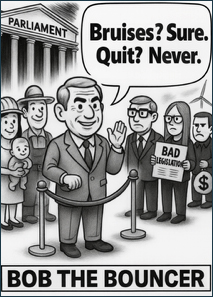 Standing Guard
Standing Guard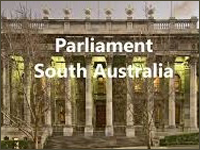 At the Australian Family Party, we have always believed in building a stronger nation — through Defence, Economy, and Family.
At the Australian Family Party, we have always believed in building a stronger nation — through Defence, Economy, and Family. In 1969, former SA Federal MP Bert Kelly was sacked as Minister for the Navy after the Australian aircraft carrier HMAS Melbourne collided with America’s USS Frank E Evans in the South China Sea. Ministerial responsibility was interpreted differently in those days.
In 1969, former SA Federal MP Bert Kelly was sacked as Minister for the Navy after the Australian aircraft carrier HMAS Melbourne collided with America’s USS Frank E Evans in the South China Sea. Ministerial responsibility was interpreted differently in those days. When the great French novelist Victor Hugo was in his 80s, he reflected on his life with the words, “I am like a forest that has been continuously cut down; yet each time I am cut down, the new growth has more life than ever”.
When the great French novelist Victor Hugo was in his 80s, he reflected on his life with the words, “I am like a forest that has been continuously cut down; yet each time I am cut down, the new growth has more life than ever”. As most will recall, the Coalition went to the 2013 election promising to ‘abolish the carbon tax, abolish the mining tax and stop the boats’.
As most will recall, the Coalition went to the 2013 election promising to ‘abolish the carbon tax, abolish the mining tax and stop the boats’.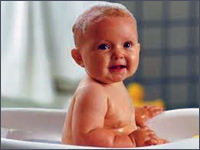 Over 40,000 Australian children are currently in government-sponsored care. Approximately 30,000 have been there for more than two years. Fewer than 200 were adopted.
Over 40,000 Australian children are currently in government-sponsored care. Approximately 30,000 have been there for more than two years. Fewer than 200 were adopted.